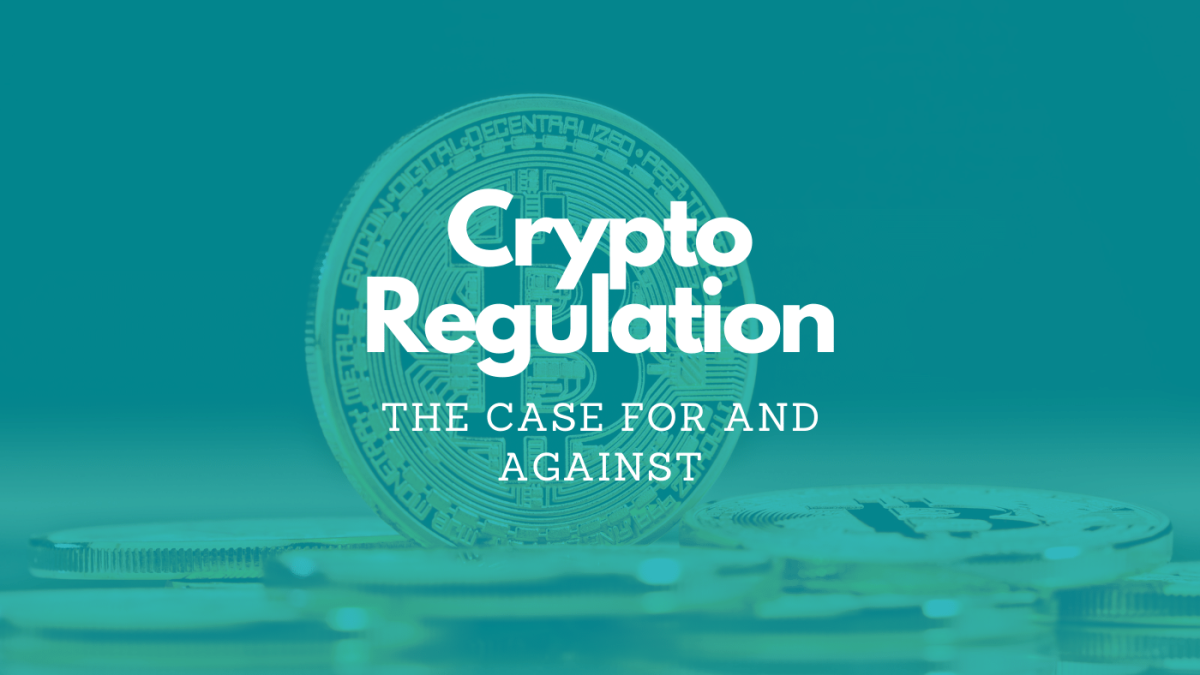The cryptocurrency regulation debate
With cryptocurrency an ever-growing phenomenon, it’s no surprise that some are calling for greater regulation and clarity surrounding the rules (however counterintuitive this may seem considering ‘decentralisation’ is at the philosophical heart of cryptocurrency and other blockchain-based technologies).
Feelings are mixed on this, with some investors loving the idea of increased stability and others believing government intervention will hinder further innovation.
The Department of Treasury has now begun its inquiry into regulating cryptocurrency exchange businesses, and has addressed the Blockchain Australia conference about this. This move is regarded as the biggest overhaul of Australia’s payments systems in 25 years.
The potential benefits
Some experts believe regulation will help provide greater stability in what we know to be a very volatile asset class. Rather than be seen as purely speculative investments (like NFTs), this could help transition cryptocurrencies into mainstream payment methods used routinely by most people.
In the Wild West of crypto to date, people have seen massive price fluctuations and no stability whatsoever. We chuckle at stories like that of Jeremy Sturdivant who as a 19-year-old in 2010 made history when he purchased two pizzas for someone on an Internet forum in return for 10,000 Bitcoins (which would now be worth around A$628 million)!
We’ve all heard of a sudden crypto fortune made – or lost. But such stories, when coupled with the occasional scam, cyberattack or money laundering incident, do not inspire the confidence needed to sustain a truly ubiquitous currency used by everyday people.
So, some argue, regulation could bring the stability needed to earn a level of trust among investors (but also everyday buyers and sellers) and send crypto truly mainstream.
This level of adoption could in turn drive greater interest and investment in the space, showing operators a greater opportunity and clearer path forward. On the topic of regulation, Rishi Khanna, CEO of Stocktwits, discussed the “real opportunity for more certainty on how to operate, evolve and innovate for the crypto industry.”
“It can help reduce speculation among crypto assets, as more institutional and individual investors come in,” says Khanna.
Why some are against regulation
Despite the potential positives, some crypto enthusiasts are unsure about the prospect of greater regulation, as they believe it may hinder innovation and growth, and that it goes against the ideological spirit of cryptocurrency with decentralisation at its core.
Whether or not they are anti-authoritarian at heart, many love cryptocurrencies precisely for this reason: they’re not backed or controlled by any institution or government, unlike traditional currencies. They theoretically represent a freer and more egalitarian world less bound by national borders and political agendas.
A more cynical read is that some people enjoy cryptocurrency as a highly volatile speculative investment and the massive upside potential it offers. If they are ‘gambling’ with money they know they can afford to lose, they see it as a bit of fun and don’t necessarily share utopian ambitions for mainstream adoption.
Whatever their reasons, there is a side of this debate firmly against government regulation.
What does this mean for crypto users?
Any new regulation is likely to impact investors’ portfolios, although it’s dependent on the focus regulators take; e.g. the regulation of stablecoins or Central Bank Digital Currency (CBDC) may not affect established currencies such as Bitcoin or Ethereum as much.
We’re always curious to watch developments unfold in the crypto world, and we recommend staying up-to-date and educated on the latest developments and news. If you feel we could be of assistance, you know where to find us for a chat!
IMPORTANT NOTICE
This blog post contains general information only and has been prepared by Allworths without reference to your objectives, financial situation or needs. Allworths cannot guarantee the accuracy, completeness or timeliness of the information contained here. By making this information available to you, we are not providing professional advice or recommendations. Before acting on any of the information contained here, you should seek professional advice.




